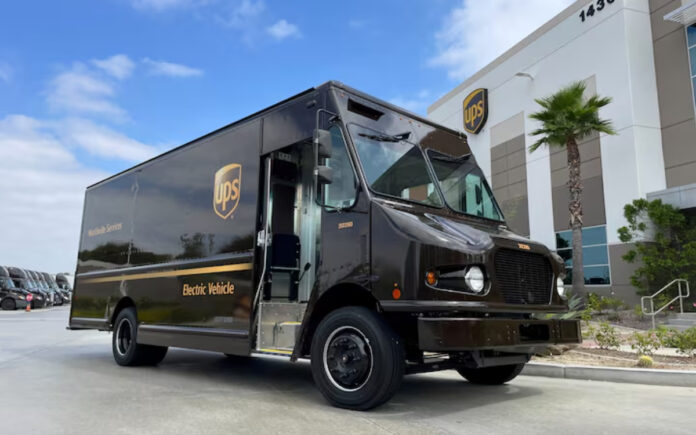Sacramento: California announced on Tuesday that it has withdrawn its request for a federal waiver to require commercial truckers to transition to zero-emissions vehicles. This move preempts what was expected to be a denial from the incoming administration of President-elect Donald Trump.
The decision was part of several pollution-fighting waiver requests filed with the Environmental Protection Agency (EPA) that were dropped by the California Air Resources Board (CARB), as detailed in documents released on Tuesday.
“The withdrawal is an important step given the uncertainty presented by the incoming administration that previously attacked California’s programs to protect public health and the climate and has said will continue to oppose those programs,” CARB Chair Liane Randolph said in a statement.
California’s Advanced Clean Fleets rule aimed to create timelines for operators of trucks carrying everything from U.S. mail and UPS packages to 40-foot containers of goods, pushing them to switch to zero-emissions vehicles, such as those powered by electric batteries.
For decades, California has been at the forefront of the U.S. movement toward less-polluting vehicles. It is the only state in the nation with the authority to request a waiver from the EPA, allowing it to set its own, more stringent vehicle emission regulations due to its history of grappling with some of the nation’s worst air quality. Other states can adopt California’s standards, and automakers often comply with them to avoid having to produce different vehicles for the state, the nation’s most populous.
CARB’s decision to withdraw the waiver request for its clean truck rule is significant, with implications beyond California. Nearly a dozen other states, including New York, New Jersey, and Washington, have adopted similar aggressive trucking standards. Furthermore, truck manufacturers are already subject to a separate California rule that requires them to sell more zero-emission trucks.
The Specialty Equipment Market Association, representing over 7,000 businesses nationwide in the automotive aftermarket industry, lauded the move, stating that California’s plan would have “crippled interstate commerce by implementing harmful EV mandates on trucking fleets.”
Also Read | With January 19 Deadline Nearing, TikTok Guarantees Job Security for U.S. Staff
The California Trucking Association, in 2023, legally challenged the truck regulation, which was originally set to take effect at the beginning of the year. California had suspended it pending the EPA’s waiver decision. Under the regulation, seaport semi-truck operators would have been required to achieve zero emissions by 2035 due to the significant health impact of diesel truck pollution on people living near cargo corridors. Long-distance sleeper cabs would have been required to reach zero emissions by 2042.
In addition to the truck regulation, CARB also withdrew its requests for locomotive and refrigeration unit rules aimed at drastically reducing emissions.
Also Read | Biden and Trump Security Advisers Hold Symbolic ‘Passing of the Torch’ on National Security
“CARB is now assessing how to continue improving air quality and reducing harmful pollutants that contribute to poor human health outcomes and exacerbate climate change,” Randolph stated.
Last month, the EPA approved California’s landmark plan to end the sale of gasoline-only vehicles by 2035, a decision made in the final weeks of President Joe Biden’s administration. This set the stage for an ongoing dispute over the future of California’s vehicle regulations, with Trump having vowed to rescind approvals granted by the EPA for California to enforce more stringent electric vehicle (EV) mandates and tighter vehicle emission standards.



